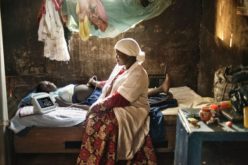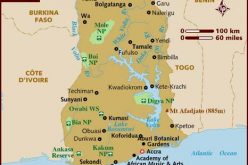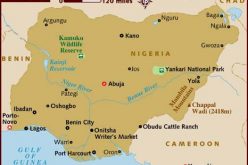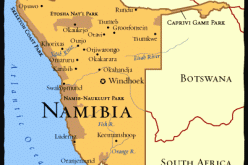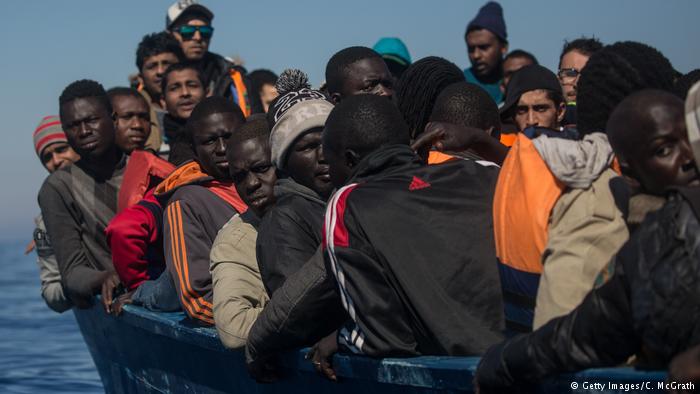 During the G-7 summit in Sicily, Donald Trump showed no interest in the refugee crisis. Now Italy is threatening to close its harbors to NGOs carrying refugees. The political pressure is becoming too great.
During the G-7 summit in Sicily, Donald Trump showed no interest in the refugee crisis. Now Italy is threatening to close its harbors to NGOs carrying refugees. The political pressure is becoming too great.
Italy is not ridding itself of its obligation to take in refugees, but it can refuse to dock refugee ships that are not flying with an Italian flag or within the framework of the EU mission, Rome said. “Italy is a country that is under pressure and requests direct contributions from its European allies,” Italian Prime Minister Paolo Gentiloni said at the G20 preparatory meeting in Berlin.
He wanted to make it clear to his colleagues “how great our worries are in regards to the risk of the ever-increasing numbers of arriving refugees.” Gentiloni wants to discuss the role of aid organizations, the European Frontex mission, repatriation programs and the available resources for Libya and other African countries. These problems have to be tackled together.
Threat as an emergency alarm
Pressure is piling onto Paolo Gentiloni’s government as the number of refugees entering Italy continues to rise. This year, already 70,000 new migrants have entered Italy, around 15 percent more than 2016. More than 10,000 people are currently aboard rescue ships on the way to Italian harbors. Most of them come from Nigeria, Bangladesh, and Guinea, but Egyptians and Syrians are also using this way since the Balkan route is closed.
In Italy, the political tone is becoming harsher as the far-right Lega Nord party and the Five Star Movement exploit the situation; they have won votes in the recent regional elections with xenophobic rhetoric.
The threat against the refugee rescue organizations is the Social Democratic government’s way of pulling the emergency brakes. “It is a declaration of bankruptcy for the EU Member States that Italy is forced to make this threat,” member of European Parliament Arne Lietz said. He has supported the “SOS Méditerranée” rescue ship for the past two years. European countries are sidestepping their responsibility Lietz complained, especially in regards to sea rescues and humanitarian aid; around 2000 people have already drowned this year in the Mediterranean Sea, according to UN estimates.
Redistribution is a charade
In September 2016, EU nations decided to take in and distribute 160,000 refugees who are in Greece and Italy. The Italian government had been told 35,000 refugees would be taken in, but now the number stands at only 5000. At the EU summit last week, Italy once again pointed out this problem, as it did in a dozen earlier meetings: but without success.
A spokesperson of the European Commission had now promised Italy further financial assistance, but that is not the main issue in Rome. “The other member countries have to double their efforts to help Italy,” Brussels demanded. But nothing can be seen of that. Next week at the meeting of EU interior minister’s in Estonia’s capital Talinn, the topic will be discussed further.
In the meantime, a discussion on international maritime law has begun: Could the NGO ships eventually go to harbors in Spain or France instead of Italy and that in and of itself be considered as redistribution? “The rule speaks of the most nearby port, in which the rescued passengers can be brought to safety,” a spokesperson of Doctors without Borders confirmed. His organization has two ships in the Mediterranean region, which have so far have not informed of a blockade of Italian ports. One should wait, as deployments of the sea rescuers need to be coordinated with the Italian authorities, which is known as the Maritime Coordination Center in Rome.
Are NGOs helping the smugglers?
The EU border agency Frontex recently started a debate on the role of the sea rescue organizations. The agency accused the NGOs of helping the smugglers and human traffickers. Traffickers abandon refugees at sea knowing that the refugees will then be rescued by the NGOs.
The sea rescues are not the problem, Green Party European Member of Parliament Barbara Lochbihler said. “The EU’s isolationist policy drives people into the arms of the smugglers. The inability of the EU states to share responsibility fairly is driving the Italian government to throttle the sea rescues,” she continued. The Greens are demanding legal ways to enter Europe for refugees and economic migrants.”Italy is under pressure, all member states have to do their part and show solidarity,” The EU refugee commissioner Dimitris Avramopoulos acknowledged. He received the threat Wednesday from the Italian EU Ambassador in Brussels. Apart from that there is a humanitarian obligation to save lives. The commission can do little itself to force this solidarity. The complaints of some Eastern European countries over the forced redistribution of refugees are still ongoing and no help is expected from there. Germany has fulfilled its quota and believes that it is has done enough to deal with the refugee crisis. Other prominent countries such as France and Great Britain are ducking out.
Libya still in chaos
In May, German Interior Minister Thomas de Maiziere and his Italian colleague pressured to send a EU mission to the border between Niger and Libya in order to keep African refugees from embarking on a journey to Europe. But there is a lot of danger on the ground there: a UN convoy was temporarily detained by militias. All attempts by Europeans to work with different groups in Libya have been unsuccessful due to the chaotic situation.
A quick solution on the North African front, which was the aim of recent decisions by the EU interior ministers, is not to be expected. There is a radical solution, which is pushed for by the Austrian Foreign Minister Sebastian Kurz: he wants to return all the rescued refugees back to the Libyan coast.


